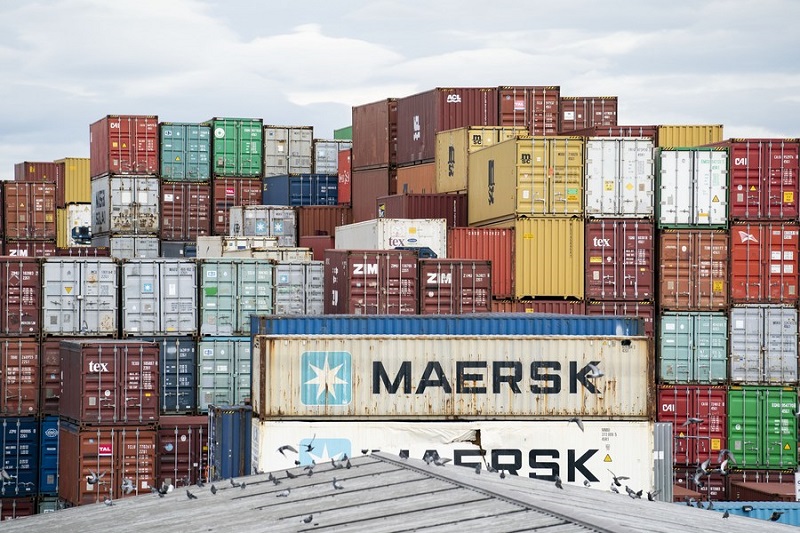Editor’s Note: On February 24, international business leaders attended a book launch and roundtable event hosted by the Center of China & Globalization on the international business landscape. Following the launch of Transition and Opportunity: Strategies from Business Leaders on Making the Most of China’s Future, attendees discussed the main challenges and opportunities facing business as the world transitions out of the Covid-19 pandemic.
Amid rising geopolitical tensions, the Covid-19 pandemic, and rising trade protectionism, business leaders gathered in central Beijing last week to discuss the rapidly evolving economic landscape. Representatives from multinational businesses, commerce chambers, and consulting groups, shared their views on the challenges and opportunities in the near future.
Much of the discussion centered around the witnessed decline in China-US relations. Craig Allen, president of the US-China Business Council, said despite a change of administration, trade tariffs against China remain at a near all-time high. Tariffs are hurting jobs and the US economy, and there is a risk that they may become permanent, he said.
Allen rejected viewing China-US relations through a zero-sum lens, noting that the “vast majority” of US-China interactions are beneficial for both sides. In a bid to foster a more stable business landscape, Allen listed a number of measures for policymakers to consider.
First, establish bilateral mechanisms to discuss macroeconomic and trade issues. Dialogue and communication is “sorely needed”, he said. Next, eliminate or significantly reduce trade barriers. Simply reducing tariffs down to an average of 12 percent would see the creation of 145,000 new American jobs, Allen noted. Finally, refrain from invoking national security as a cover for protectionism. Any further expansion of the national security definition, he said, will have a “chilling effect” on cooperation.
Beyond trade and political tension, business leaders complained of a growing media bias against China. The overwhelmingly negative stories, they said, do not reflect the realities here on the ground. The voice of business in China is largely “muted”.
Vaguhn Barber, Global Chair of KPMG in China, said there was a significant lack of reports highlighting the opportunities for foreign businesses in China. Hideo Kawabuchi, a Counselor at the Embassy of Japan, agreed. Businesses are somewhat fearful of coming here because of the negative coverage, he said. A quick look at some of the recent reports highlights their point. Take for example:

Containers are seen at the Port of Baltimore in Maryland, the United States, Oct. 26, 2021. (Photo/Xinhua)
“China is finding new ways to hurt US businesses” (Politico). “China is a minefield, and foreign firms keep hitting new trip wires” (The New York Times). “China’s unpredictable, heavy-handed governance threatens growth” (Wall Street Journal). The list continues.
“I suffer a lot when I read the western media,” half-joked Martin Mueller, Chairman of the Swiss Chinese Chamber of Commerce.
Covid-19 travel restrictions were also raised as another factor weighing on the international business community. In the case of foreign companies operating in China, the room was split on what approach should be taken.
Some speakers said they wanted to see China adopt more relaxed border controls. The result, they said, would not only help restore balance for those who have business in China and family overseas but, would also help to bridge the widening information gap. “The divergence of viewpoints is exacerbated by business leaders and politicians unable to travel here,” said Ben Harbug, CCG Vice-chair.
Others, recognizing the inherent challenges in opening the borders, opted for a more cautious approach. Jorg Wuttke, president of the EU Chamber of Commerce in China, said he had stopped advocating for a change in China’s border policy. The country’s success in quickly controlling the pandemic means it has not reached a high level of “herd immunity”. This presents a challenge going forward, said Wuttke.
Despite the combined challenges, business leaders said they remained optimistic over China’s business environment in the post-pandemic era.
Steven Lynch, managing director of the British Chamber of Commerce in China, highlighted the country’s ongoing efforts to further open up its economy. “China has not stood still in opening up over the past 40 years,” he said. Confidence amongst UK businesses in China is on the rise and is supported by a matched rise in investment, Lynch added. According to a recent BritCham survey, 46 percent of British companies said they will increase investment in China in 2022.
The fact remains, concluded Hamburg, “the world center of economic growth is gradually shifting from West to East.”